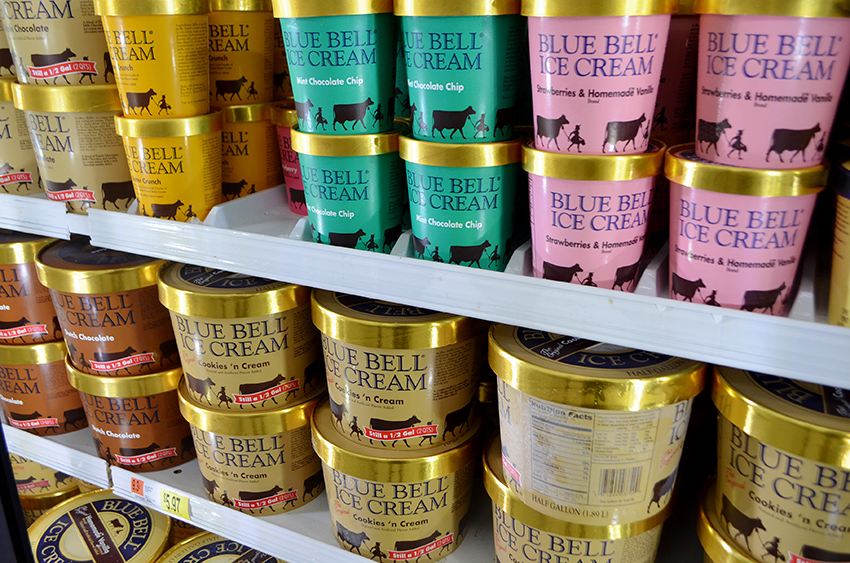Recent outbreaks of listeria are causing worry for food manufacturers such as Blue Bell Creameries, the Kellogg company and Organic by Nature, according to the U.S. Food and Drug Administration.
Food products manufactured by these companies were recalled in four states: California, Connecticut, Maryland and Washington, according to the Centers for Disease Control and Prevention.
Although Texas was not one of the states where there was a recall, listeria can be dangerous because of its ability to grow and spread in cold temperatures, molecular biology professor Marvin Whiteley said.
“It’s not unique that listeria will grow at cold temperatures, but it is pretty unique amongst the bacteria that’s causing diarrhea diseases,” Whiteley said. “They are also pretty resilient and can stick around for weeks and months, and in some cases, years.”
Whiteley said listeria can grow and inhabit places most people don’t expect.
“You can find it in soil, you can find it in the food chain, you can find it in a lot of different places, and it is also very common in vegetables,” Whiteley said. “It gets in the grooves from the outside and gets in very deep, and it’s very hard to wash off, which can make it pretty difficult to get rid of before you eat.”
Food Services director Rene Rodriguez said if there is any kind of outbreak, U.S. Foods, which is their main distributor, tells them the exact codes to enable them to locate and pull the problematic product off the shelves.
“When the recall hits U.S. Foods, it would automatically tell us if we even ordered any of that product and what location it went to in our system,” Rodriguez said.
Robert Mayberry, campus executive chef for the Division of Housing and Food Services, said if there happens to be an unsafe food source within their location, it is their responsibility to deal with it appropriately.
“We check the temperature of the food products, we write down that temperature and record the time and we check it periodically,” Mayberry said. “We’re pretty careful every step of the way to maintain safety.”
Mayberry said there are two levels to the food handler’s certification. Anyone who directly deals with food has to have a state certification with the health department and every manager and supervisor has to take an eight-hour class to learn about basic food handling and safety.
“We have a good, solid system,” Mayberry said. “We do everything we can, every step of the way, to minimize and eliminate food safety issues.”















